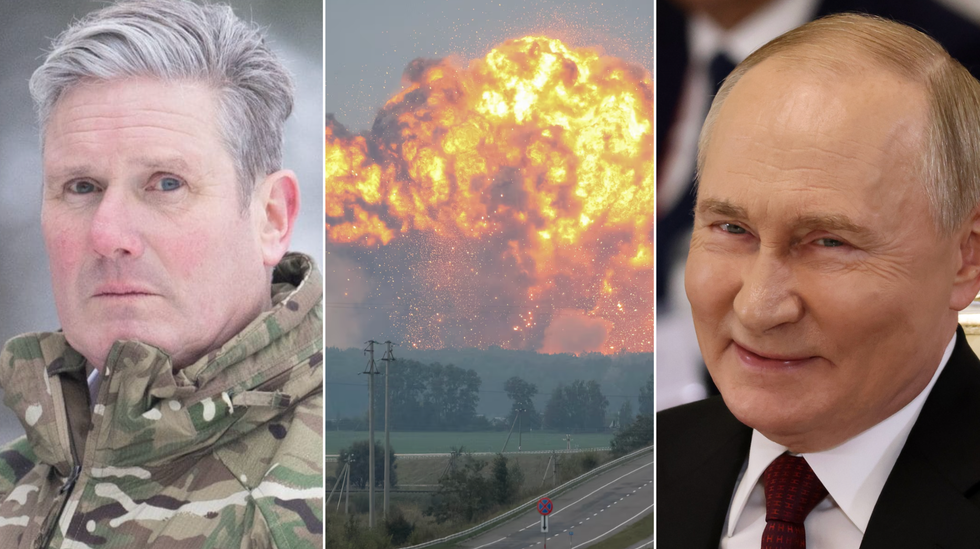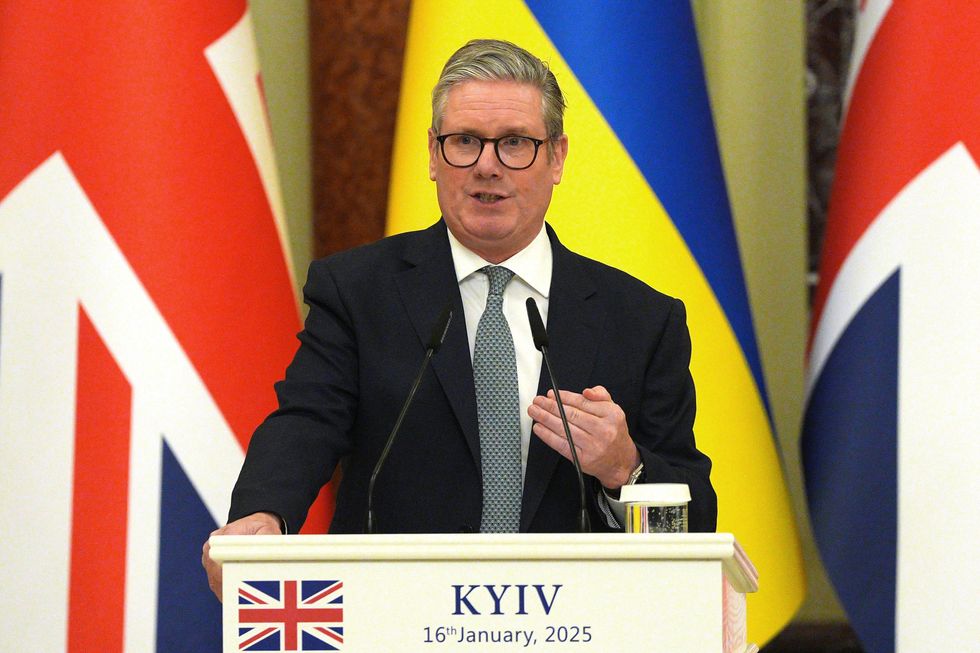Starmer to send BRITISH troops to Ukraine?! - commentators react to Starmer sending troops to Ukraine
GB News
Keir Starmer's plan to send troops to Ukraine would leave Britain exposed to an attack, warns Air Vice-Marshal Sean Bell
Don't Miss
Most Read
Trending on GB News
In an exclusive interview with GB News, a top British defence chief has exposed the dire state of Britain's military capabilities, warning we would be unable to repel an invasion.
The bleak assessment comes as Keir Starmer says he is "ready and willing" to put UK troops on the ground after Donald Trump opened up negotiations with Vladimir Putin over the heads of Volodymyr Zelensky and his Western allies.
The move has caused dismay in Europe, with leaders holding an emergency meeting in Paris on Monday night to cobble together a plan to guarantee Ukrainian security in the absence of an American backstop.
A clear consensus is yet to emerge, with German Chancellor Olaf Scholz slamming Starmer's proposal as "completely premature" and "highly inappropriate".

Keir Starmer's plan to send troops to Ukraine would leave Britain unable to repel an invasion, suggests Sean Bell
Getty Images
Military experts have also warned that Britain can ill-afford to send thousands of troops abroad as it would stretch defensive lines at home to the brink.
In an exclusive interview with GB News, Air Vice-Marshal Sean Bell went as far as to say that chronic underinvestment in the armed forces has left the UK fighting a "war of national survival", adding that we do not have the "building blocks" to repel an attack.
He explained: "We have gone from wars of choice, expeditionary warfare where we take our forces overseas and get involved where and when we want, to wars of national survival".
He says this shift in defensive posture is 35 years in the making.
He attributes the decline in military spending to the fall of the Soviet Union in 1991, which marked the end of the Cold War.
"Because we didn't perceive a threat for the last 35 years, we didn't pay for the capabilities," Bell claimed.
The Air Vice-Marshal recalls days spent at RAF Barkston Heath, his old flying train base. The Lincolnshire base housed Bristol Bloodhound surface-to-air (SAM) missiles from 1983 to 1989.
The UK's main air defence weapon is no longer in active service or under current investment for deployment by the UK.
The RAF retired the Bloodhound in 1991 with the dissolution of the Soviet Union, marking the end of its operational role against high-flying bombers.
LATEST MEMBERSHIP DEVELOPMENTS

Starmer has pledged to increase defence spending to 2.5 per cent of GDP but has not given a timeline for meeting this target
PAStarmer has pledged to increase defence spending to 2.5 per cent of GDP but has not given a timeline for meeting this target.
It's generally agreed that this investment is sorely needed.
Under pressure to reduce public spending, the UK Government saw defence as an area where cuts could be made without immediate threat to national security due to the cosy new geopolitical reality that followed the end of the Cold War.
The British Army's personnel strength saw a substantial reduction over this same period.
By 2024, the full-time strength of the British Army was reported to be around 72,510 personnel, which marks a significant decrease from the end of the Cold War.
Recent reports suggest that the UK's defence capabilities, particularly air defence and coastal defence, are wafer-thin, with the entire British Army potentially lasting only six months to a year in a large-scale conflict.
Following Starmer's pledge, Lord Dannatt told the BBC that up to 40,000 UK troops would be needed for such a mission and "we just haven't got that number available".








